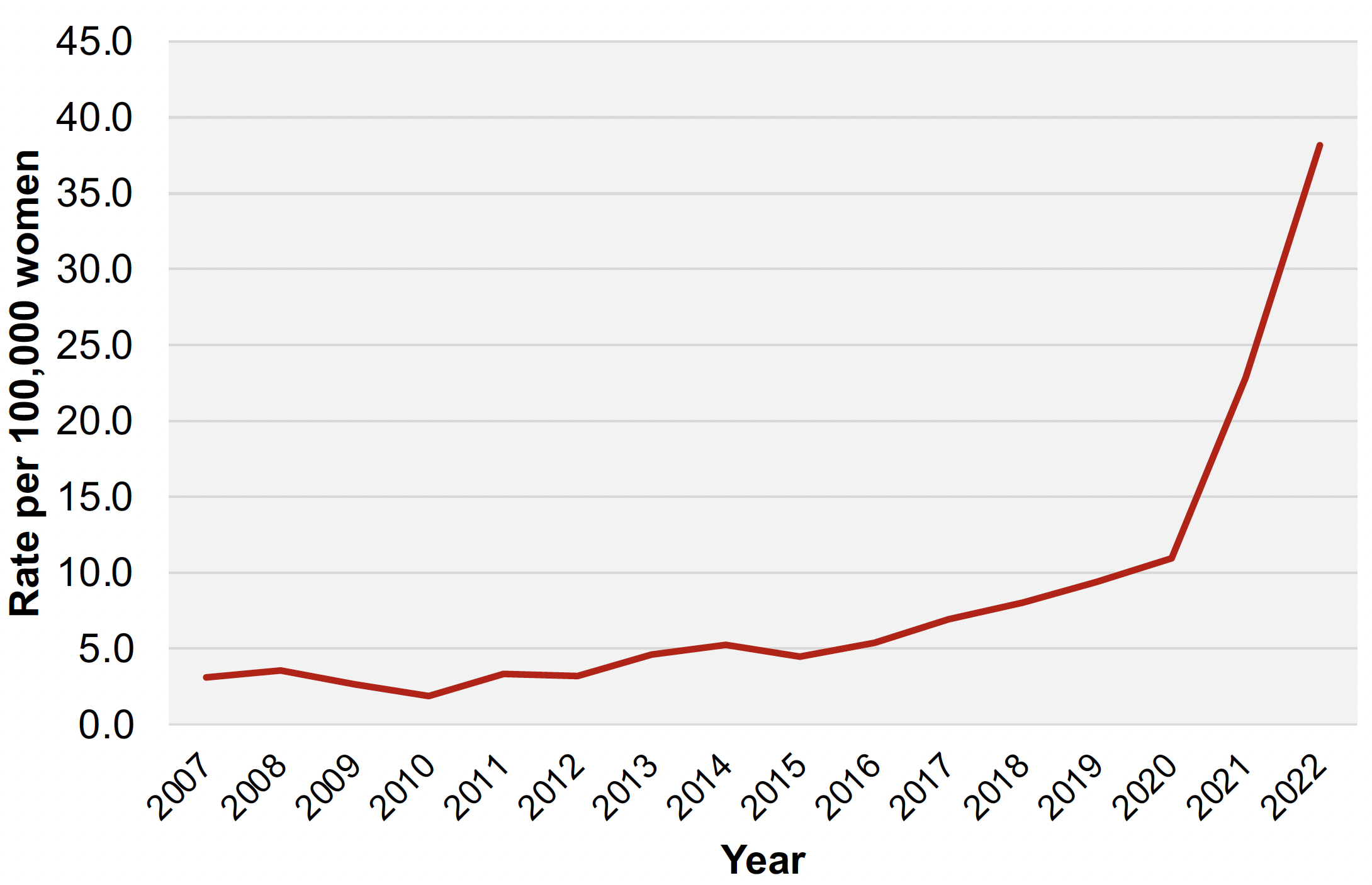Syphilis epidemic
In 2021, there were 11 cases of congenital syphilis (parent to child transmission) in King County, a more than 10-fold increase compared to 2020 when only 1 case of congenital syphilis was identified. Congenital syphilis is a devastating disease that can lead to miscarriage, stillbirth, neonatal death, prematurity, and long-term health outcomes in infants affected. Congenital syphilis is a consequence of rising rates of syphilis among heterosexual cis-men and -women. Syphilis cases among gay, bisexual, and other men who have sex with men are also very high and rising. Currently, reported syphilis cases are low (less than 1%) among transgender and non-binary people.
In response, Public Health — Seattle & King County has created a Syphilis task force which includes a monthly review of real time syphilis data to guide public health interventions. The data presented on this page report on the monthly syphilis case counts by population in Seattle and King County. These data are not final and are subject change. Only the annual STD Epidemiology Report should be used for the most accurate reporting.
Syphilis: An Accelerating Epidemic
Incidence of all-stage syphilis among cisgender women, King County, Washington 2007-2022
Syphilis cases by stage, King County, WA
- January 2024, Syphilis Report
- December 2023, Syphilis Report
- November 2023, Syphilis Report
- October 2023, Syphilis Report
- September 2023, Syphilis Report
- August 2023, Syphilis Report
- July 2023 Syphilis Report
- June 2023 Syphilis Report
- May 2023 Syphilis Report
- April 2023 Syphilis Report
- March 2023 Syphilis Report
- February 2023 Syphilis Report
- January 2023 Syphilis Report
Syphilis testing guidelines for cis-women, and cis-men who have sex with women (including pregnant persons)*
| Sexually active individuals with these risk factors: (1) injection drug use (2) methamphetamine or nonprescription opioid use (3) homelessness (4) transactional sex (5) history of incarceration (6) history of syphilis in the last 2 years should test annually and whenever they present for care up to every 3 months. |
| Pregnant individuals should be tested at these times: (1) first prenatal care (2) 3rd-trimester laboratory testing (24-28 weeks) (3) time of delivery (if the above risks or specific STI diagnoses are present) (4) when presenting to a clinical setting without prenatal care or in cases of fetal demise after 20 weeks. |
| Individuals should also test annually if: (1) their sex partner has any of the above risks (2) they are a woman with male partners who have sex with both men and women (3) they are sexually active, living with HIV, and not in mutually monogamous relationships. |
| Sexually active individuals aged 45 and under who have not been tested since January 2021 should test for syphilis. |
| Individuals with gonorrhea or HIV should be tested for syphilis if they were not tested for syphilis when they had their gonorrhea and HIV test. |
- Syphilis facts (PDF)
- Syphilis is Rising posters (10.7Mb, PDF)
- Syphilis is Rising campaign
- Syphilis facts, CDC
- Syphilis is rising for women and pregnant people (PDF)
For King County health providers:
Link/share our site at kingcounty.gov/syphilis

 Translate
Translate
